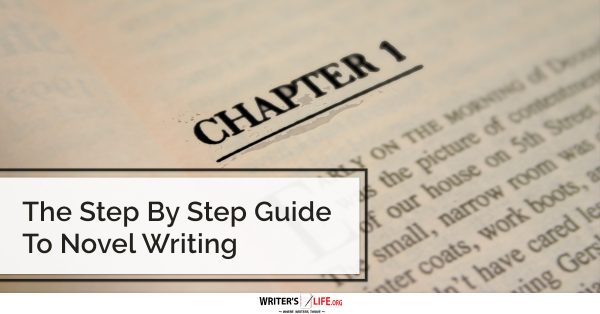- How To Tackle Jealousy In Creative Writing
- Common Submission Mistakes
- How To Stop Your Blog Becoming Boring
- The One Thing Every Successful Writer Has In Common
- How To Make Yourself Aware Of Publishing Scams
- Why Almost ALL Writers Make These Grammar Mistakes At Some Point
- 5 Tips For Authors On How To Deal With Rejection
- Top Mistakes to Avoid When Writing a Novel
- How to Avoid Common New Writer Mistakes
- 10 Mistakes New Fiction Writers Make
The Step By Step Guide To Novel Writing

Writers have different opinions about what the hardest part of creating a novel is. Is it the editing stage, the point where you have to send it off to publishers, or is it the writing itself? Of course, each stage of your novel writing will throw up new challenges, and sometimes it can be hard to even get started in the first place!
Here are some simple steps to help you write a novel from the very beginning to the very end.
1.Decide what your book is about
Before you start writing you need to have an idea. It’s practically impossible to just sit down at your computer and start to write. So ask yourself this: what is my book going to be about? All you need is that single seed of an idea forming in your mind, and you can start to get going.
2. Write your plot, chapter by chapter
This is very important. While you might be excited to get writing, without plotting your novel you run the risk of getting halfway through and realising it has nowhere to go. You need to make sure your idea has legs. Start by writing a simple plot summary, then go into more depth. If you can get to the point where you have brief chapter outlines of your entire book you’ll not only feel more confident about your idea, you’ll also be much more inspired to get to the end. You'll also never have one of those days where you try and write but simply can’t think of where your story is going! Of course, as you write your story may well change, and that’s OK, but knowing that you have a robust plot from the outset is a good idea.
3. Do your research
Love it or hate it, getting your research out of the way early is a good idea. Arguably some writers prefer to wait until they have finished their stories to then go back and check the facts and do their research - the danger of this is that you discover something which means you have to change a whole bunch of your text. Research early and then you’ll have all this great information and knowledge to make your novel feel believable from the outset.
4. Decide on your target reader
Who are you writing for? Who will buy your book when it’s finished? Decide on your target reader, write a little profile about them and stick it somewhere you can see when you write. Keeping your reader in mind throughout the writing process will help you write the kind of book that will sell.
5. Set targets
Set yourself writing targets. Word goals are the easiest to achieve. Make sure you challenge yourself but also be realistic about how much time you can spend writing your book each day. Make achieving your goals your absolute priority. No excuses.
6. Get early feedback
Get some feedback on early chapters of your novel from trusted friends or colleagues. If you prefer, try submitting your chapters to critique websites such as ‘You Write On’ where you will receive an unbiased, but fair critique of your work from other members of the site. This way you can go back and change things early on.
7. Edit
The editing stage of your work can be long and tedious, but it is completely necessary. It’s a good idea to go through your novel two or three times and get it in the best shape it possibly can be. If you can, then hire the services of a professional editor to make further adjustments before sending your book to publishers.
8. Submit
If you are going down the traditional publishing route it is now time to submit your work. The main considerations are ensuring that the publisher actually publishes the type of story yours is, writing a strong proposal letter that really sells your book, and following the submission guidelines precisely!
9. Expect rejection
Let’s face it, 99.9% of authors will get rejected. It doesn’t mean their work is not of merit. Rejection is all part of being a writer so be prepared for it and simply keep trying to find a publisher that fits you. Remember self-publishing is also a great way to get your book seen by the world, so you always have this option regardless.
10. Don’t stop writing
Just because you have finished your novel you can’t rest on your laurels! The more you write the better you’ll get so keep preserving and get cracking with your next great story!

Bethany Cadman -author of 'Doctor Vanilla's Sunflowers'


























